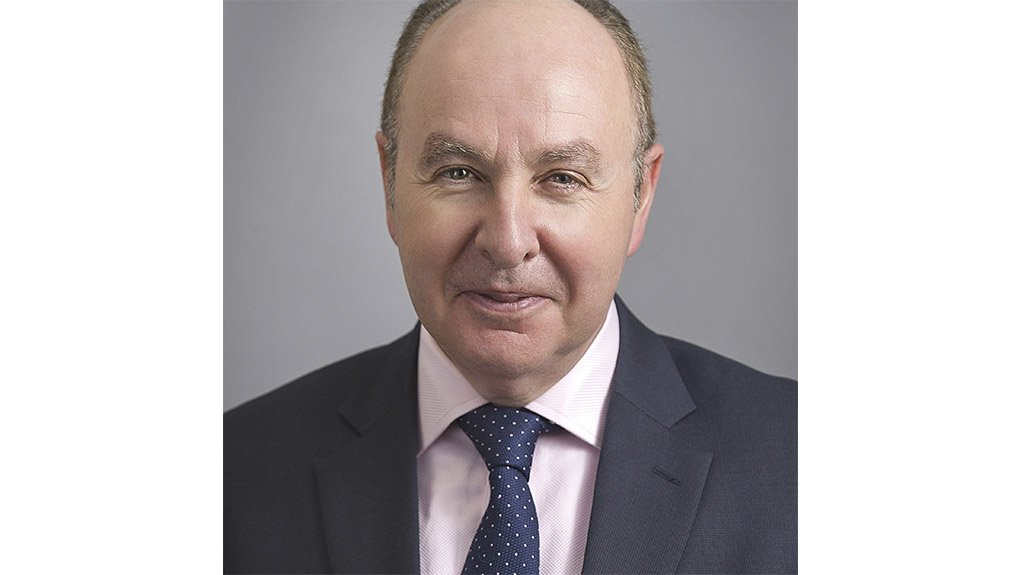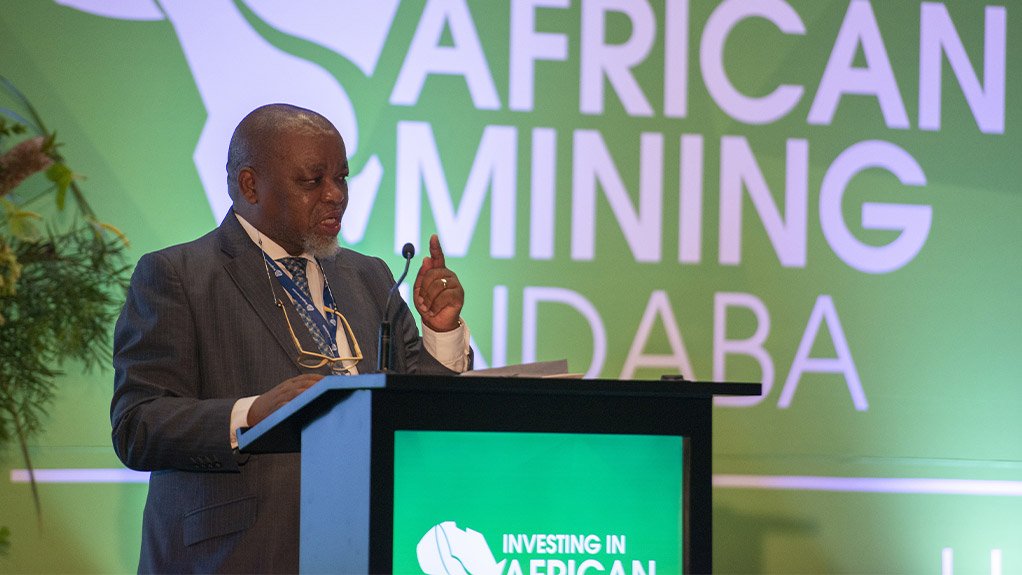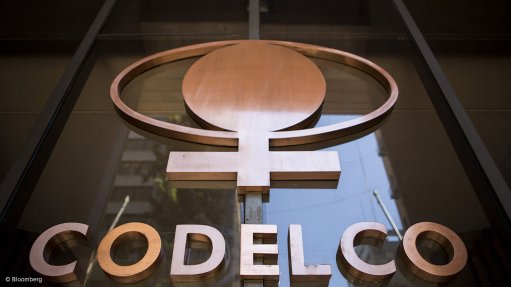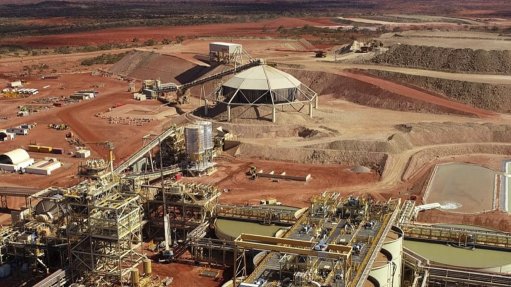Minister skates over issues in speech



PETER LEON Setting up a separate regime to govern oil and gas was a commendable objective, but government should have started with a clean slate
GWEDE MANTASHE The Draft Upstream Petroleum Resources Development Bill has received positive comments
The various proverbial “elephants in the room” of the South African mining sector were not addressed by Mineral Resources and Energy Minister Gwede Mantashe when he delivered his speech at the 2020 Investing in African Mining Indaba earlier this month, says law firm Herbert Smith Freehills partner Peter Leon.
At a media briefing held by the firm on February 3, Leon did, notwithstanding, commend the Minister for broaching the energy crisis South Africa faces, owing to the existential situation of State-owned power utility Eskom.
“. . . we are . . . gazetting a revised Schedule 2 of the Electricity Regulation Act, which will enable self-generation and facilitate municipal generation options under ‘Distributed Generation’,” Mantashe stated.
Delegates of Mining Indaba were, however, left with questions on the judicial review instituted last year by Minerals Council South Africa into Mining Charter III. Leon added that “precious little” information had been made available on the subject.
Also omitted from Mantashe’s speech was the issue of land expropriation without compensation, which “will have a chilling effect on foreign direct investment in South Africa”, said Leon.
The Minister stressed, however, that South African mining had great benefits for investors and South Africans across the value chain: “In 2019, in response to the President’s R1-trillion investment drive, the department granted 28 new mining rights in coal, iron-ore and manganese”.
He added that an estimated 4 800 jobs could be created on the back of R1-billion in capital expenditure.
The Minister did, however, highlight that Section 189 retrenchments in the mining sector were noted in of the 2018/19 Annual Report of the Commission for Conciliation, Mediation and Arbitration as the second-largest contributor of job losses after the construction sector.
Leon also commended Mantashe for addressing South Africa’s mining production decline, which was down 3.1% year-on-year in November 2019.
However, he noted that the Minister’s failure to address the Coronavirus outbreak in China and the impact this would have on Chinese growth, which was expected to fall below 6% for the first time in 15 years, according to a New York Times report.
“How will this impact on commodity exports from South Africa and the rest of Africa? That is an issue, as experts are saying that the coronavirus is not simply an epidemic, it is a pandemic.”
Mantashe said the Draft Upstream Petroleum Resources Development Bill, published for public comment on December 24 last year, had received positive comments, signalling that government was on the right path.
Nonetheless, Leon stated that the Bill failed to meet the needs of South Africa’s embryonic upstream oil and gas industry, positively charged by petroleum refining company Total’s potentially game-changing discovery made off the coast of Mossel Bay last year.
The Bill comes in the wake of Operation Phakisa, which identified the urgent need to separate the oil and gas industry from the Minerals and Petroleum Resources Development Act (MPRDA).
“It took government six years to do this and one would have thought that, during that process, government would have produced bespoke petroleum legislation,” said Leon.
Herbert Smith Freehills’ Global Energy Practice of counsel Paul Morton, also at the briefing, said the Bill was a “missed opportunity”.
He said setting up a separate regime to govern oil and gas was a commendable objective, but government should have started with a clean slate and considered the specific requirements of the oil and gas industry.
Leon explained that, unfortunately, in terms of offshore exploration and production rights, in many respects, the Bill comprised large chunks of the MPRDA.
Consequently, there were still provisions that are tailored to mining instead of the operation of large-scale offshore infrastructure, added Morton.
“Hopefully, we will see further changes in subsequent drafts.”
Comparatively, in Mozambique, which has had a transformational gas discovery at Rovuma, government sought best practice advice from the World Bank, the International Monetary Fund, the Norwegian government and various other agencies on how to create a bespoke petroleum Bill, said Leon.
“That has seemingly not happened in South Africa.”
In addition, there has been much focus on the 20% free carry interest in exploration and production rights, to which the State has a right through national oil company PetroSA.
“Investors won’t be surprised by that,” said Morton.
Yet, what is a bit more surprising in the provisions of the Bill is the unclear structure and mechanics of the State carried interest.
Leon stated that the 20% State carried interest was not unusual, but there were concerns about how the process would be operated and financed, and how it dovetailed with the 10% black empowerment provisions of the Bill.
“To sink an exploration well, given the rough conditions of South Africa’s offshore waters, is in the region of $250-million. So, there is a huge cost on the upstream industry, which I don’t think the Department of Mineral Resources and Energy has properly factored in,” he underscored, emphasising that South Africa had some of the highest offshore drilling costs globally.
“There isn’t enough information to provide investors with a clear view on what the actual economic impact of the carried interest will be,” said Morton.
At the time of the media briefing, Herbert Smith Freehills was producing a client brief on the draft Bill. Public comment on the Bill was due on February 21.
Comments
Press Office
Announcements
What's On
Subscribe to improve your user experience...
Option 1 (equivalent of R125 a month):
Receive a weekly copy of Creamer Media's Engineering News & Mining Weekly magazine
(print copy for those in South Africa and e-magazine for those outside of South Africa)
Receive daily email newsletters
Access to full search results
Access archive of magazine back copies
Access to Projects in Progress
Access to ONE Research Report of your choice in PDF format
Option 2 (equivalent of R375 a month):
All benefits from Option 1
PLUS
Access to Creamer Media's Research Channel Africa for ALL Research Reports, in PDF format, on various industrial and mining sectors
including Electricity; Water; Energy Transition; Hydrogen; Roads, Rail and Ports; Coal; Gold; Platinum; Battery Metals; etc.
Already a subscriber?
Forgotten your password?
Receive weekly copy of Creamer Media's Engineering News & Mining Weekly magazine (print copy for those in South Africa and e-magazine for those outside of South Africa)
➕
Recieve daily email newsletters
➕
Access to full search results
➕
Access archive of magazine back copies
➕
Access to Projects in Progress
➕
Access to ONE Research Report of your choice in PDF format
RESEARCH CHANNEL AFRICA
R4500 (equivalent of R375 a month)
SUBSCRIBEAll benefits from Option 1
➕
Access to Creamer Media's Research Channel Africa for ALL Research Reports on various industrial and mining sectors, in PDF format, including on:
Electricity
➕
Water
➕
Energy Transition
➕
Hydrogen
➕
Roads, Rail and Ports
➕
Coal
➕
Gold
➕
Platinum
➕
Battery Metals
➕
etc.
Receive all benefits from Option 1 or Option 2 delivered to numerous people at your company
➕
Multiple User names and Passwords for simultaneous log-ins
➕
Intranet integration access to all in your organisation




















